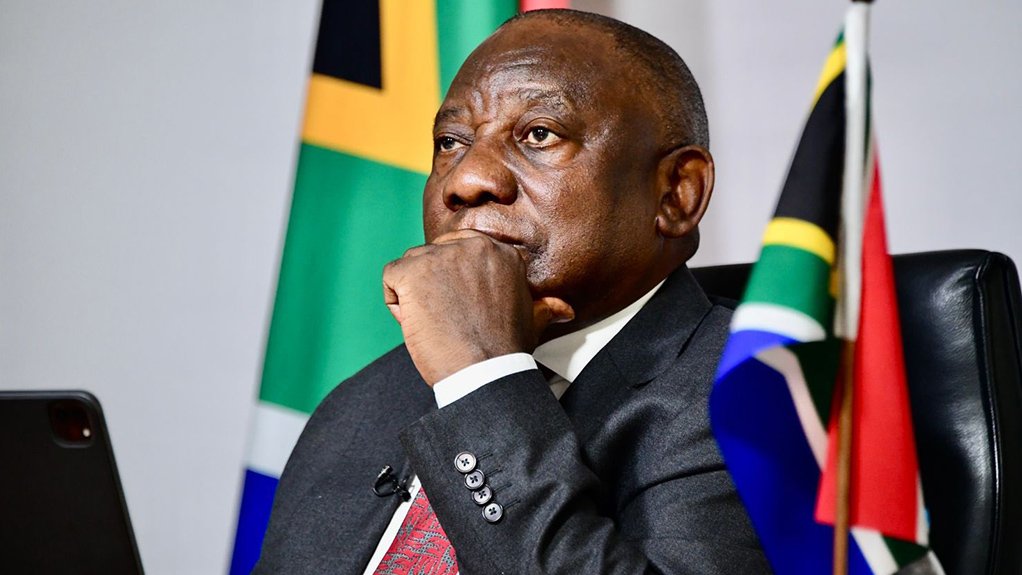Programme Director,
Premier of KwaZulu-Natal, Ms Nomsa Dube-Ncube,
Minister of Public Works and Infrastructure, Mr Sihle Zikalala,
Executive Mayor of the uMgungundlovu District Municipality, Cllr Mzi Zuma,
Cabinet Colleagues, MPs, MPLs, and Councillors,
Chairperson of the Provincial House of Traditional and Khoi-San Leaders, Inkosi RS Shinga,
Amakhosi, Izinduna, nabefundisi,
Umphakathi wase Mkhambathini nakwaZulu-Natal,
Distinguished guests,
Ladies and gentlemen,
Today is a great day for the people of KwaZulu-Natal and for many rural communities across the country.
It is a mark of the progress we have made in building bridges in areas of the country where such basic infrastructure is vital for their development.
The Welisizwe Rural Bridges Programme is one of government’s most important initiatives to improve safety, wellbeing and access for rural communities.
This programme has been undertaken with greater urgency in the wake of the catastrophic floods that struck KwaZulu-Natal and parts of the Eastern Cape and North West in April 2022.
The flooding washed away homes, roads, shops, schools, clinics and many other critical infrastructure that people need for their daily lives.
Many of the rivers here in KwaZulu-Natal and in other provinces are difficult – and often dangerous – to cross, especially after heavy rains. This makes it difficult for learners to get to school and for community members to get to work.
Because of climate change, extreme weather events like flooding are becoming increasingly common. Communities living along and close to rivers are particularly vulnerable.
That is why we see building more Welisizwe rural bridges as a priority.
The purpose of the programme is to improve safety and well-being for rural communities who have to cross rivers on a daily basis, to boost the local economy by making mobility easier, and to create jobs and support local businesses.
Across the country, 58 rural bridges are currently under construction, with 11 bridges completed in KwaZulu-Natal.
The bridges that have been handed over today will make it easier for communities to get to the clinic and hospital, to school, to town and to places of work. It will make it easier for them to fetch supplies and to take produce to market.
Communities are also benefiting from the construction of the bridge, with many participating through the Expanded Public Works Programme.
In addition to these workers, each bridge site uses SANDF engineers and artisans who do work like welding, groundwork, earth moving and soil retention.
Since its inception this programme has supported skills development by appointing graduates to work in bridge assessment, project management and maintenance, as assistant engineers and as candidate construction project managers.
The bridge components are all locally sourced from South African companies that specialise in the manufacture and supply of steel-modular type bridges.
Local suppliers have also benefitted through the supply of materials such as stones, cement, concrete, road sign paint and personal protective equipment.
This year, we celebrate 30 years of freedom.
Over the past three decades, we have built bridges between the people of South Africa, as we work to overcome the divisions of the past.
The Welisizwe rural bridges are an important part of breaking with the divisions of the past.
Over centuries of colonialism and decades of apartheid, the needs of the majority of South Africans were deliberately neglected, especially in our rural communities.
Infrastructure was built for the benefit of a privileged minority.
The historical lack of infrastructure in black communities contributed to the deep levels of poverty and inequality that we continue to grapple with today.
We remain determined to correct the imbalances in infrastructure.
Our country’s infrastructure backlog is large and government cannot attend to it alone.
We invite the private sector to invest in infrastructure development, especially in rural areas, understanding that it supports better conditions for economic growth.
As Government, we will continue to create an enabling environment that will attract investment and support infrastructure-led growth so that no one is left behind.
We have a shared responsibility to restore the dignity and hopes of the people.
It is time to build bridges, not to destroy or burn them.
It is time to build together a South Africa that we will be proud to leave for future generations.
Today, the children of these areas can safely cross flooded rivers and attend school.
Today, our grandparents can safely travel to health care facilities or to access government services.
Masiwele isizwe sithuthuke.
Masibambisane sibuyise isithunzi sabantu abahlala ezindaweni zasemakhaya.
I thank you.
EMAIL THIS ARTICLE SAVE THIS ARTICLE ARTICLE ENQUIRY
To subscribe email subscriptions@creamermedia.co.za or click here
To advertise email advertising@creamermedia.co.za or click here











